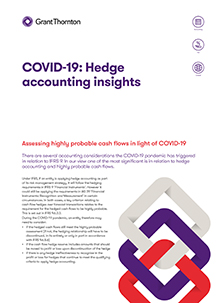-
Audit of annual and consolidated financial statements
We place particular emphasis on customized solutions and international service and adapt our services to your needs.
-
Assurance related advisory services
Assurance related advisory services are based on the knowledge and expertise that are the staff of life of our auditors.
-
Global audit technology
We apply our global audit methodology through an integrated set of software tools known as the Voyager suite.
-
Accounting related consulting
Accounting in accordance with UGB, US-GAAP or IFRS is in constant motion. The integration of new regulations into their own accounting systems poses special challenges for companies.
-
Corporate Tax
We are your problem solvers for corporate tax issues
-
Restructuring, Mergers & Acquisition
Expertise and creativity for the perfect structure
-
International Tax
We are here, whenever our clients require our assistance
-
Transfer pricing
We are your experts for an optimal transfer pricing structure
-
Indirect Tax & Customs
We take care of your indirect taxes so you can take care of your business
-
Private Wealth
We are your competent partner in the field of Private Wealth Tax Services
-
Real Estate Tax
We are a valuable partner at every stage of your property's life
-
Global Mobility Services
Local roots and global networking as a secret for successful assignment management
-
Advisor for Advisor
As advisors for advisors, we support in complex situations
-
Bookkeeping & Financial accounting
Financial accounting is the basis for many decisions in the company. Only those who prepare their figures clearly and get a good overview of their company can recognize weak points in time and react to negative developments. The use of state-of-the-art software (BMD) allows you to access your figures at any time. Digital document management and a document management system for data archiving are a matter of course. We take care of your financial accounting.
-
Preparation of annual & consolidated financial statements
Depending on the size of your company and the legal form chosen, you are obliged to prepare annual financial statements. In addition, shareholders, owners and management want to be provided with financial information on a regular basis. We support you in fulfilling your recording obligations and thus ensure that you present companies, the bank and other addressees with meaningful and reliable figures.
-
Payroll Services
Payroll services are among the subject areas that are changing rapidly and constantly gaining in complexity. This is where tax law, social security law, labour law, residence law and other legal matters come together. Our experts will help your team to stay up-to-date and solve complex issues. But we are also happy to take care of your entire payroll accounting.
-
Tax Compliance
Tax authorities keep entrepreneurs and freelancers constantly engaged with tax issues, so they play a central role in almost every business decision. Depending on your needs, our services range from the preparation of tax returns, the execution of tax calculations with a thorough review of the data as a basis for assessment, to international tax compliance for several countries.
-
Robotic Process Automation (RPA)
Robotic Process Automation (RPA) is a software-based technology that mimics a series of activities within and between systems based on a set of instructions typically to complete a process.
-
Valuation
Valuations are a core competence of Grant Thornton Austria. As auditors and tax advisors we combine profound know-how with our practical experience to offer you customized solutions for your valuation assignment. Our industry expertise is based on years of services to our clients, including listed companies as well as owner-managed companies with an international focus. We advise on valuation matters related to arbitration and provide expert opinions.
-
Forensic Services
When it comes to risks in business, our experts are on hand. We support you not only in suspicious cases or in disputes, but also develop suitable strategies in the area of prevention to avoid serious cases as far as possible. Our Cyber Security team helps you to keep your networks and applications secure and is quickly on hand in the event of a security leak.
-
Transaction Support
We can support you throughout the transaction process – helping achieve the best possible outcome at the point of the transaction and in the longer term.
-
Sustainability Services
Sustainability is no longer a trend, but the only way to create a future worth living. Our experts will support you in successfully developing your sustainability strategy and preparing your sustainability reporting in compliance with regulations.
-
Merger & Acquisition
Companies start new activities and separate from old ones, cooperate and merge. Markets and competitive conditions are subject to constant and increasingly rapid change. As a result, existing business models are changing. Some companies have to restructure and reorganize. But new business opportunities also open up.
-
Restructuring & Going Concern Forecast
Restructuring & Going Concern Forecast: Bundled services for your strategic, operational and financial decisions offer the right answers for companies, banks, shareholders and investors.
-
Internal Audit
Internal Audit helps companies and organisations to achieve their goals by analysing and evaluating the effectiveness of risk management, controls and management and monitoring processes. Internal Audit focuses on independent and objective audit (assurance) and consulting services that improve the value creation and business activities of your company.
-
Expert dispute resolution & advisory
Grant Thornton Austria offers comprehensive services in the field of business-oriented expert services with a broad range of competencies from banking to communication. The core activity of experts is the objective recording of findings and the preparation of expert opinions - regardless of all external circumstances. Our experts Gottwald Kranebitter and Georg H. Jeitler, as sworn and court-certified experts, ensure that the highest professional standards and the principle of objectivity are observed.
-
Blockchain and Crypto-Asset
Blockchain as a carrier technology for crypto currencies and smart contracts, among other things, is becoming increasingly important. Grant Thornton Austria offers comprehensive audit and confirmation services for block chain technologies and business models.
-
Corporate & Brand Strategy
We support you in developing growth strategies for a sustainably successful future and in maximizing the potential of your brand.
-
Cyber Security
Cyber incidents, IT system failures, the resulting business interruptions and the loss of critical data are one of the greatest business risks for companies. Recent cases underline the need for strategic protection and awareness of the issue and require a holistic approach and technical expertise that takes into account all legislative, regulatory and technical aspects of cyber security to protect companies against the daily increase in cybercrime incidents.
-
International Project Coordination
Our International Engagement Management team is your central point of contact for international projects in all our service lines. We take care of operational project management for you and act as a central point of contact and coordination for your projects. We support companies that start international projects from Austria as well as companies from abroad that want to gain a foothold in Austria or use Austria as a hub for their international projects, especially in the DACH (Germany, Austria and Switzerland) and CEE region.
-
International Desks
As a member of the Grant Thornton network, we guarantee direct access to resources from our worldwide circle of partners. This global connection enables us to seamlessly integrate highly qualified specialists and industry experts from different countries around the world into our teams. Through our broad perspective and diverse expertise, we ensure that we can optimally meet the individual requirements of our clients in an increasingly globalised economy.

Under IFRS, if an entity is applying hedge accounting as part of its risk management strategy, it will follow the hedging requirements in IFRS 9 ‘Financial Instruments’. However, it could still be applying the requirements in IAS 39 ‘Financial Instruments: Recognition and Measurement’ in certain circumstances. In both cases, a key criterion relating to cash flow hedges over forecast transactions relates to the requirement for the hedged cash flows to be highly probable. This is set out in IFRS 9.6.3.3.
During the COVID-19 pandemic, an entity therefore may need to consider:
- If the hedged cash flows still meet the highly probable assessment (if not, the hedging relationship will have to be discontinued, in its entirety or only in part in accordance with IFRS 9.6.5.6).
- If the cash flow hedge reserve includes amounts that should be moved to profit or loss upon discontinuation of the hedge.
- If there is any hedge ineffectiveness to recognise in the profit or loss for hedges that continue to meet the qualifying criteria to apply hedge accounting.
Download the article below or read on for our insights.

Do hedged cash flows still meet the highly probable assessment?
The requirement to meet the highly probable assessment is crucial. The impact of COVID-19 needs to be taken into consideration in the highly probable assessment, based on the facts and circumstances that exist at the end of the reporting period.
For instance, entities frequently enter into cash flow hedges of forecast transactions, such as the purchase and sale of raw materials and inventories. A forecast transaction can be designated as a hedged item only if it is highly probable to occur. The highly probable assessment is therefore likely to be significantly impacted. The impact of some or all of the hedged transactions ceasing to be highly probable could vary depending on the facts and circumstances, varying from hedge accounting failure, partial hedge discontinuance or significant ineffectiveness.
The impact of this is likely to be significant for any entities which hedge forecast transactions where the volumes are impacted by COVID-19. It may be that derivatives were taken out at earlier times where the hedged levels were considered highly probable at the time of hedge inception, but due to COVID 19 in the intervening period the highly probable cash flows will now likely to be significantly reduced.
This can also be relevant to cash flow hedges over interest rate risk. While the hedged item in many cases will relate to interest cash flows on debt which is from committed facilities, projected covenant failure due to COVID 19 could impact the hedge accounting assessment. Similarly, if the hedged cash flows included a forecast issuance of debt, COVID 19 could impact the highly probable assessment of this.
What is meant by highly probable for IFRS 9?
The term 'highly probable' is not defined in IFRS 9 but is interpreted to have a much greater likelihood of occurring than 'more likely than not'. The meaning of the term has not changed between IAS 39 and IFRS 9 and IG F3.7 accompanying IAS 39 provided guidance on the meaning.
Assessing whether a forecast transaction is 'highly probable' and/or 'expected to occur' requires judgement based on individual facts and circumstances. Although IFRS 9 does not specify a quantitative threshold to define these terms, 'expected to occur' might be interpreted as more likely than not (ie a probability of over 50%), and 'highly probable' as being much closer to 100%.
The interpretation guidance mentioned above contained some helpful guidance to interpret 'highly probable' with respect to hedge accounting. That guidance indicated an assessment of the likelihood that a forecast transaction will take place is not based solely on management's intention, it should be supported by observable facts and the attendant circumstances, such as:
- the frequency of similar past transactions
- the financial and operational ability of the entity to carry out the transaction
- whether substantial commitments of resources have been made to a particular activity
- the extent of loss of disruption of operations that could result if the transaction does not occur
- the likelihood that transactions with substantially different characteristics might be used to achieve the same business purpose, and
- the entity's business plan.
Overall COVID-19 will mean that in many industries, there will be a lower confidence level on sales or purchases. This will depend on facts and circumstances, including the nature of the products and services and the extent to which demand and the ability to supply has been impacted by the pandemic and therefore the level of uncertainty on a forward-looking basis with reference to the hedged item.
What should you do when a hedging relationship is discontinued?
If a hedging relationship is discontinued because a forecast transaction is no longer highly probable, the entity needs to assess whether the transaction is still expected to occur. Just because the hedged transaction is no longer highly probable does not automatically mean that all related other comprehensive income reserves should be transferred to the profit or loss immediately upon the discontinuance or partial discontinuance of the hedging relationship.
Potential sources of ineffectiveness in cash flow hedges
COVID-19 also introduces potential sources of hedge ineffectiveness where interest payments on loans are subject to a deferral of forgiveness. In addition, many loans contain interest floors (eg interest rate is LIBOR +1% but loan contract says LIBOR is floored at 0%). Where interest rates fall, this increases the likelihood of the interest floor impacting the future cash flows as there may be no corresponding floor in the hedging instrument. This causes a source of hedge ineffectiveness because when some repayments are postponed to a later date for the hedged loan, there could have several periods where the interest cash flows on the swap have nothing to match on the hedged instrument’s side, which could result in ineffectiveness.
In addition, the increased credit risk as a result of COVID-19 could affect the hedge effectiveness. The credit risk of the counterparty could affect the hedge effectiveness testing and the measurement of hedge effectiveness, and this is true both for hedging instruments and hedged items. For instance, if the credit risk of the counterparty to an uncollateralised derivative has deteriorated as a result of COVID-19 (eg it being severely downgraded by external rating agencies such as Moody’s or S&P), the hedging relationship will most likely have to be discontinued.
In these situations the qualifying criterion for hedge accounting in IFRS 9 which is 'the effect of credit risk does not dominate the value changes that result from that economic relationship' will probably no longer be met. Another example would be where the hedged asset becomes credit impaired as a result of the pandemic: here the hedging relationship would cease if the hedge no longer met the requirements of hedge effectiveness.
Another source of ineffectiveness, in the case of hedging foreign exchange risk of expected foreign exchange sales or purchases, is when the date of the future transaction is postponed (while the cash flow date on the hedging derivative remains unchanged). The calculation of the resulting ineffectiveness would depend on how exactly the hedged transaction is documented. Although forecast transactions related to inventory do not pose credit risk, the credit risk of the possible counterparty to the anticipated transaction can indirectly affect the assessment of whether the transaction is highly probable.
Potential non-recoverability of OCI reserves
If an entity expects that all or a portion of the other comprehensive income (OCI) reserve (that is a loss) will not be recovered in the future, it should straightaway reclassify the amount that is not expected to be recovered into profit or loss as a reclassification adjustment. This is the case even for hedges that remain in place.
Situations where this potentially could happen during the COVID pandemic are as follows:
- a hedge of future purchases of goods whereas the expected reselling price of these goods would not permit to recover the current loss in OCI
- a hedge of interest rate risk of floating rate financial asset that has been impaired.
What disclosure requirements?
An entity is required to apply the disclosure requirements in accordance with IFRS 7 ‘Financial Instruments Disclosure’ for those risk exposures that an entity hedges and for which it elects to apply hedge accounting. In our view, hedge accounting disclosures should provide information about:
- an entity’s risk management strategy and how it is applied to manage risk
- how the entity’s hedging activities may affect the amount, timing and uncertainty of its future cash flows
- the effect that hedge accounting has had on the entity’s Statement of Financial Position, Statement of Other Comprehensive Income and Statement of Changes in Equity, including amounts relating to hedge accounting that have been recognised in profit or loss, and
- the impact of COVID-19 on hedge ineffectiveness.
- the impact of COVID-19 on hedge discontinuation and the resulting transfers of OCI reserves to the profit or loss (the nature of forecast cash flows that are no longer highly probable, amounts relating to discontinued derivatives and other comprehensive income transfers).
How we can help
Preparers of financial statements will need to be agile and responsive as the situation unfolds. Having access to experts, insights and accurate information as quickly as possible is critical – but your resources may be stretched at this time. We can support you as you navigate through accounting for the impacts of COVID-19 on your business.
Now more than ever the need for businesses, their auditors and any other accounting advisors to work closely together is essential. If you would like to discuss any of the points raised, please contact our experts Christoph Zimmel and Rita Gugl.


